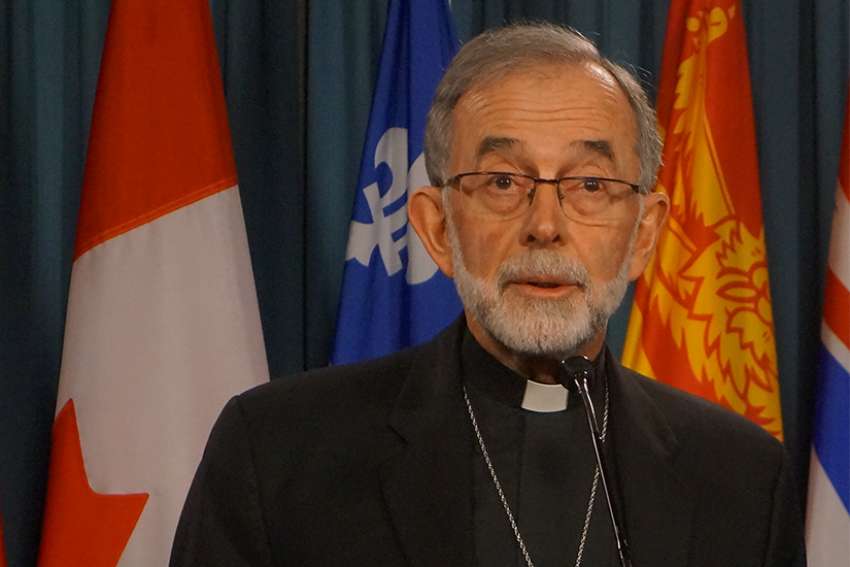That’s a question not being addressed in the Canadian Conference of Catholic Bishops (CCCB)’s recent letter to the Indigenous Peoples of Canada.
The CCCB’s March 27 message characterizes the bishops’ relationship with Indigenous peoples as being a “major pastoral priority” aiming to bring about “reconciliation, healing and solidarity,” and affirming that the Holy Father takes the findings of the Truth and Reconciliation Commission “seriously.”
But, after consulting with the Canadian bishops about the Truth and Reconciliation Commission (TRC)’s Call to Action #58, which urges the Pope to apologize for “the Roman Catholic Church’s role in the spiritual, cultural, emotional, physical and sexual abuse of First Nations, Inuit and Métis children in Catholic-run residential schools,” the Holy Father “felt that he could not personally respond.”
And that was that.
It’s a cryptic and confusing statement. For most Catholics, it seems to contradict what they know of Pope Francis as being an outspoken advocate for the downtrodden, poor, all who are hurt by social and environmental injustices.
Indeed, during his visit to Bolivia in 2015, Pope Francis apologized for Church actions during colonization of the Americas: “I say this to you with regret: many grave sins were committed against the native peoples of America in the name of God... I humbly ask forgiveness, not only for the offences of the Church herself, but also for crimes committed against the native peoples during the so-called conquest of America.”
So it would not at all be out of character for Pope Francis and the Catholic Church to apologize for the part the Church played in residential schools.
If anything, it’s pretty clear-cut that such an acknowledgment should occur.
The vagueness of the bishops’ statement fails to explain why the Pontiff decided not to apologize, which has been raising a lot of speculation.
Could it be that the CCCB as an entity is distancing itself from the abuses that took place in residential schools?
That seems to be the case. In its website posting “Catholic Statements of Regret on former Residential Schools,” the CCCB states that the Catholic Church in Canada has a decentralized structure, where dioceses and religious communities are autonomous and legally responsible for their own actions.
This hands-off view could explain why the CCCB as a body has not invited Pope Francis to come to Canada at this time.
Or, is it a matter of money? Hosting a papal visit can be an expensive undertaking.
A formal apology could also open an expensive can of worms. During an Oct. 9 Vatican Radio interview, CCCB President Lionel Gendron expressed the fear that the Pope could be sued if he issued a formal apology.
Perhaps the Vatican is resisting pressure at the diplomatic level. According to the UK-based international Catholic news weekly The Tablet, “Francis, however, is wary of being drawn into a country’s internal political process,” referring to Prime Minister Justin Trudeau’s push last May for a papal apology, as called for by the TRC.
Whatever the reason, Canadian Catholics and the Indigenous community deserve a clear explanation of why a formal apology is not forthcoming at this time and whether or not such an apology will occur in the future.
If it’s problematic for Pope Francis to apologize on Canadian soil, he could issue an apology for the Catholic Church’s role in residential school abuse globally, listing the African, North American and South American countries where this took place.
The apology should include the wrongness of imposing colonial values on Indigenous communities, of which residential schools played a part.
(Majtenyi is a public relations officer who specializes in research communications at an Ontario university.)
Cathy Majtenyi: Bishops’ letter leaves question unanswered
By Cathy MajtenyiWhy won’t Pope Francis issue a formal apology for the Catholic Church’s role in Canada’s residential school system?
Please support The Catholic Register
Unlike many media companies, The Catholic Register has never charged readers for access to the news and information on our website. We want to keep our award-winning journalism as widely available as possible. But we need your help.
For more than 125 years, The Register has been a trusted source of faith-based journalism. By making even a small donation you help ensure our future as an important voice in the Catholic Church. If you support the mission of Catholic journalism, please donate today. Thank you.
DONATE

